Top types of stainless steels in China introduce,list main products and website if have
In China, the top types of stainless steels commonly used are 304, 316, and 430.
1. Type 304: This is the most common type of stainless steel in China, known for its high corrosion resistance and versatility. It is used in a wide range of applications, including household appliances, kitchenware, and industrial equipment. Main products made from Type 304 stainless steel include kitchen sinks, cookware, and food processing equipment.
2. Type 316: This type of stainless steel is known for its superior corrosion resistance, particularly in harsh environments such as marine and chemical processing. It is often used in applications where high levels of corrosion resistance are required, such as in marine equipment, pharmaceutical equipment, and medical devices.
3. Type 430: Type 430 stainless steel is a lower-cost alternative to Type 304, offering good corrosion resistance and heat resistance. It is commonly used in applications such as automotive trim, kitchen appliances, and architectural cladding.
One of the prominent stainless steel manufacturers in China is Tsingshan Holding Group, which produces a wide range of stainless steel products, including sheets, coils, and pipes. Their website is www.tsingshangroup.com.
Shanxi Taigang Stainless Steel Co., Ltd is another major stainless steel producer in China, specializing in the production of stainless steel plates, sheets, and coils. Their website is www.tgsg.com.cn.
Overall, the top types of stainless steels in China are Type 304, Type 316, and Type 430, with manufacturers such as Tsingshan Holding Group and Shanxi Taigang Stainless Steel Co., Ltd leading the industry in producing high-quality stainless steel products.
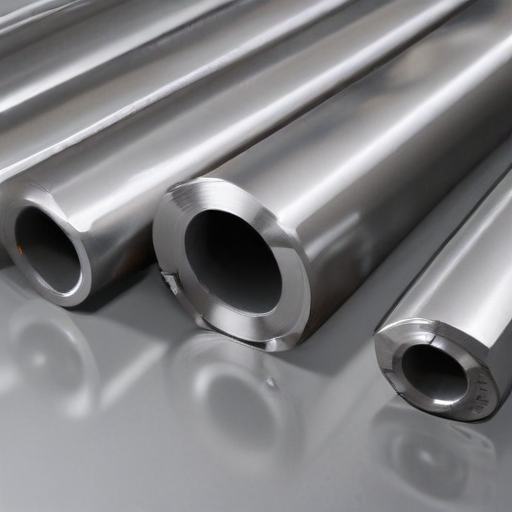
Types of types of stainless steels
Stainless steel is a versatile material known for its corrosion resistance and durability. There are several types of stainless steels, each with unique properties and applications.
1. Austenitic stainless steels: These are the most common type of stainless steel, known for their high levels of corrosion resistance and strength. They are non-magnetic and have a high nickel content, making them ideal for use in applications such as food processing equipment, automotive parts, and household appliances.
2. Ferritic stainless steels: These stainless steels have a high chromium content and are known for their magnetic properties. They offer good corrosion resistance in mild environments and are often used in automotive exhaust systems, heat exchangers, and decorative applications.
3. Martensitic stainless steels: These stainless steels are heat treatable and have high levels of carbon and chromium. They offer good hardness and wear resistance, making them suitable for applications such as cutlery, surgical instruments, and industrial equipment.
4. Duplex stainless steels: These stainless steels have a balanced microstructure of austenite and ferrite, offering a combination of high strength and corrosion resistance. They are commonly used in chemical processing, oil and gas industry, and marine applications.
5. Precipitation-hardening stainless steels: These stainless steels can be heat treated to achieve high levels of strength and hardness. They are often used in aerospace components, high-performance equipment, and surgical implants.
Each type of stainless steel has its own characteristics and advantages, making it suitable for specific applications. It is important to consider factors such as corrosion resistance, strength, and magnetic properties when selecting the appropriate type of stainless steel for a particular project.
Pros and Cons of Using types of stainless steels
There are various types of stainless steels available, each with their own unique properties and characteristics.
One of the main advantages of using stainless steel is its corrosion resistance. Stainless steel is highly resistant to rust and corrosion, making it ideal for use in marine environments, and industries where exposure to water and chemicals is common.
Another advantage of stainless steel is its high strength and durability. Stainless steel is a very strong material, making it suitable for heavy-duty applications such as in construction, automotive, and industrial settings.
Additionally, stainless steel is also easy to clean and maintain. It is non-porous, which makes it resistant to stains and bacteria growth, making it a hygienic choice for food processing and medical equipment.
However, there are also some drawbacks to using stainless steel. One of the main disadvantages is its high cost compared to other materials such as carbon steel or aluminum. The production process for stainless steel is more complex and expensive, which drives up the overall cost of the material.
Stainless steel can also be difficult to work with and requires special tools and equipment for fabrication. It is a hard material that requires high heat and pressure to manipulate, making it more challenging to shape and form compared to other metals.
In conclusion, the choice of which type of stainless steel to use will depend on the specific requirements of the application. While stainless steel offers many advantages such as corrosion resistance, strength, and durability, it also comes with higher costs and challenges in fabrication. It is important to weigh these pros and cons carefully when selecting the right material for a project.
types of stainless steels Reference Specifications (varies for different product)
There are many different types of stainless steels with varying compositions and properties. Some common reference specifications for stainless steels include ASTM A240, ASTM A276, ASTM A312, and ASTM A554. These specifications may specify the chemical composition, mechanical properties, and other characteristics of the stainless steel.
One common type of stainless steel is austenitic stainless steel, which is non-magnetic and has good corrosion resistance. Examples of austenitic stainless steels include 304, 316, and 321. These grades are often used in applications where corrosion resistance is a primary concern, such as in the food and beverage industry.
Another type of stainless steel is ferritic stainless steel, which is magnetic and has good corrosion resistance. Examples of ferritic stainless steels include 430 and 410. These grades are often used in applications where high strength and moderate corrosion resistance are required, such as in automotive exhaust systems.
Lastly, there is duplex stainless steel, which has a mixed microstructure of austenite and ferrite. Examples of duplex stainless steels include 2205 and 2507. These grades offer a combination of high strength and good corrosion resistance, making them suitable for a wide range of applications.
In summary, stainless steels come in a variety of types with different compositions and properties. By understanding the reference specifications and characteristics of each type, you can choose the most appropriate stainless steel for your specific application.
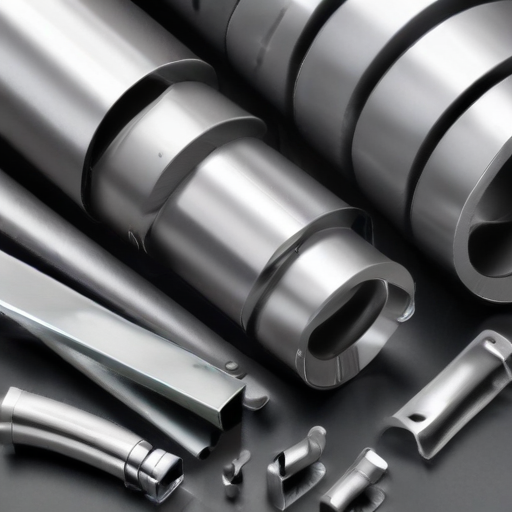
Applications of types of stainless steels
Stainless steels are widely used in various industries due to their excellent corrosion resistance, durability, and strength.
One common type of stainless steel is austenitic stainless steel, which is non-magnetic and has a high level of chromium and nickel. It is commonly used in the food and beverage industry for equipment such as cooking utensils, refrigeration units, and storage tanks. Additionally, austenitic stainless steel is often used in architectural applications such as building facades, handrails, and decorative elements due to its attractive appearance and resistance to staining.
Ferritic stainless steel is another type that is magnetic and has a high concentration of chromium with little to no nickel. It is commonly used in automotive applications such as exhaust systems, decorative trim, and fuel lines due to its resistance to corrosion and high temperature oxidation. Duplex stainless steel, which combines properties of both austenitic and ferritic stainless steels, is often used in chemical processing equipment, pressure vessels, and offshore oil and gas pipelines due to its high strength and corrosion resistance.
Martensitic stainless steel, which is magnetic and has a high level of carbon, is commonly used in tools, knives, and surgical instruments due to its high hardness and wear resistance. Precipitation-hardening stainless steels are used in aerospace applications such as aircraft components and turbine blades due to their high strength-to-weight ratio and resistance to fatigue.
In conclusion, the versatile properties of different types of stainless steels make them ideal for a wide range of applications in various industries, from food and beverage to automotive to aerospace.
Material of types of stainless steels
Stainless steel is a versatile and durable material that is commonly used in various industries due to its resistance to corrosion, heat, and chemical damage. There are several different types of stainless steels, each with its own unique properties and applications.
One of the most commonly used types of stainless steel is austenitic stainless steel, which is non-magnetic and has excellent corrosion resistance. This type of stainless steel is often used in food processing equipment, chemical tanks, and architectural applications.
Another type of stainless steel is ferritic stainless steel, which is magnetic and has good corrosion resistance. Ferritic stainless steel is commonly used in automotive exhaust systems, heat exchangers, and decorative applications.
Martensitic stainless steel is a type of stainless steel that is known for its high strength and hardness. This type of stainless steel is often used in cutting tools, knives, and surgical instruments.
Duplex stainless steel is a type of stainless steel that has a two-phase microstructure, with a combination of austenitic and ferritic properties. Duplex stainless steel has excellent corrosion resistance and is often used in chemical processing, oil and gas equipment, and marine applications.
Lastly, precipitation-hardening stainless steel is a type of stainless steel that can be strengthened through heat treatment. This type of stainless steel is often used in aerospace components, nuclear reactor vessels, and high-performance applications.
In conclusion, stainless steel is a versatile material with a wide range of applications due to its different types and unique properties. Whether you need excellent corrosion resistance, high strength, or magnetic properties, there is a type of stainless steel that can meet your specific needs.
Quality Testing Methods for types of stainless steels and how to control the quality
Quality testing methods for stainless steels typically include chemical analysis, mechanical testing, non-destructive testing, and metallographic examination.
Chemical analysis involves determining the composition of the stainless steel, particularly the percentages of key elements such as chromium, nickel, and molybdenum. This can be done using techniques such as optical emission spectroscopy or x-ray fluorescence.
Mechanical testing methods assess the mechanical properties of the stainless steel, such as tensile strength, yield strength, and impact resistance. This can involve tests such as tensile testing, hardness testing, and impact testing.
Non-destructive testing methods, such as ultrasonic testing or dye penetrant testing, can be used to inspect the stainless steel for defects or imperfections without damaging the material.
Metallographic examination involves analyzing the microstructure of the stainless steel, which can provide information on factors such as grain size, inclusions, and phase distribution.
To control the quality of stainless steels, it is important to establish quality control processes, including regular inspection and testing of incoming materials, in-process inspections during manufacturing, and final inspection before shipment. This can help ensure that the stainless steel meets the required specifications and standards.
Furthermore, having a quality management system in place, such as ISO 9001 certification, can help ensure consistent quality and continuous improvement. Regular calibration of testing equipment and training of personnel on quality control procedures are also important measures to control the quality of stainless steels.
By implementing these quality testing methods and quality control measures, manufacturers can produce high-quality stainless steels that meet the needs and expectations of customers.
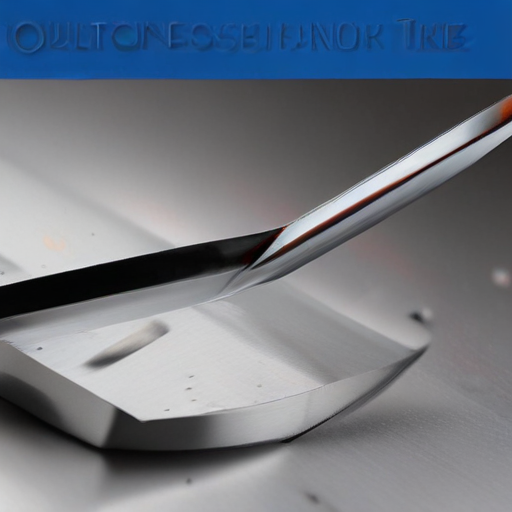
The Work Process and how to use types of stainless steels
The work process of using different types of stainless steels involves understanding the specific properties and applications of each type. Stainless steels are corrosion-resistant alloys that contain at least 10.5% chromium, making them ideal for a wide range of industries such as automotive, aerospace, construction, and food processing.
There are several types of stainless steels, each with unique characteristics that make them suitable for different applications. For example, austenitic stainless steels are non-magnetic and have excellent formability, making them ideal for kitchen appliances and utensils. Ferritic stainless steels are magnetic and have good corrosion resistance, making them suitable for automotive exhaust systems and heat exchangers. Martensitic stainless steels are hard and wear-resistant, making them ideal for cutting tools and knives.
When using stainless steels in the work process, it is important to select the appropriate type based on the specific application requirements. Factors to consider include the corrosion resistance, strength, formability, and temperature resistance of the stainless steel.
To effectively use stainless steels, it is essential to follow proper fabrication and welding techniques to ensure the material’s integrity and performance. This may involve using specific welding electrodes, shielding gases, and heat treatments to prevent corrosion and maintain the material’s strength.
In conclusion, understanding the properties and applications of different types of stainless steels is essential in selecting the appropriate material for a given project. By following proper fabrication and welding techniques, stainless steels can be effectively utilized in various industries to provide long-lasting and reliable performance.
types of stainless steels Importing questions including Cost,Supplier,Sample,Certification and Market
When importing stainless steel, it is important to consider factors such as cost, supplier reputation, sample availability, certification, and market demand.
1. Cost: Before importing stainless steel, it is necessary to compare the prices offered by different suppliers to ensure competitive pricing. Factors influencing cost include the grade, quantity, and quality of the stainless steel.
2. Supplier: Choose a reputable supplier with a track record of delivering high-quality stainless steel products. Research the supplier’s history, customer reviews, and certifications to ensure reliability and product consistency.
3. Sample: Requesting samples from potential suppliers allows you to assess the quality and suitability of the stainless steel for your specific needs. This step helps avoid potential issues or discrepancies in the final product.
4. Certification: Ensure that the stainless steel meets industry standards and certifications for quality and safety. Look for certifications such as ISO 9001, ASTM standards, or other relevant certifications depending on the intended use of the stainless steel.
5. Market: Understand the demand and trends in the market for stainless steel products. Research market conditions, competitors, and potential growth opportunities to make informed decisions when importing stainless steel.
In summary, importing stainless steel requires careful consideration of cost, supplier reputation, sample evaluation, certification compliance, and market analysis to ensure a successful and profitable transaction.
How to find and select check reliable types of stainless steels manufacturers in China
When looking for reliable stainless steel manufacturers in China, there are a few key steps to follow:
1. Research and verify the manufacturer’s reputation: Look for reviews and testimonials from previous customers to gauge the quality of products and services offered by the manufacturer. You can also check for certifications and accreditations to ensure compliance with international quality standards.
2. Check the manufacturer’s experience and expertise: Look for manufacturers with a proven track record and extensive experience in producing stainless steel products. Choose manufacturers who specialize in producing stainless steels to ensure high-quality products.
3. Visit the manufacturer’s facilities: If possible, arrange a visit to the manufacturer’s facilities to inspect their production processes, equipment, and quality control measures. This will give you a better understanding of the manufacturer’s capabilities and commitment to quality.
4. Request samples and pricing: Ask for samples of the stainless steel products you are interested in and compare them with samples from other manufacturers. Request pricing quotes from multiple manufacturers to find the best deal without compromising on quality.
5. Communicate clearly and ask questions: Engage in open communication with the manufacturer to clarify any doubts or concerns you may have. Ask about their production lead times, shipping policies, and warranty terms to ensure a smooth collaboration.
By following these steps, you can confidently select a reliable stainless steel manufacturer in China that meets your quality and budget requirements.
Background Research for types of stainless steels manufacturers Companies in China, use qcc.com archive.org importyeti.com
When looking for manufacturers of stainless steels in China, there are several reputable companies to consider. Some of the top manufacturers include Baosteel Group, Taiyuan Iron and Steel Group, and Jiuquan Iron and Steel Group. These companies are known for producing high-quality stainless steel products for various industries such as automotive, construction, and manufacturing.
Baosteel Group is one of the largest steel producers in China and is known for its wide range of stainless steel products. They have a strong reputation for quality and reliability in the industry. Taiyuan Iron and Steel Group is another leading manufacturer of stainless steel in China, with a focus on producing specialty stainless steels for niche markets. Jiuquan Iron and Steel Group is also a key player in the stainless steel industry, with a track record of producing high-performance stainless steel products.
By using resources such as qcc.com, archive.org, and importyeti.com, you can access valuable information about these companies and their products. Qcc.com provides detailed company profiles and reviews, while archive.org offers historical data and insights into the industry trends. Importyeti.com can help you identify the top manufacturers and exporters of stainless steel products in China, as well as track their trade activities and market presence.
Overall, these resources can help you make an informed decision when choosing a manufacturer of stainless steels in China. By researching the background of these companies and their track record in the industry, you can ensure that you are partnering with a reliable and reputable supplier for your stainless steel needs.
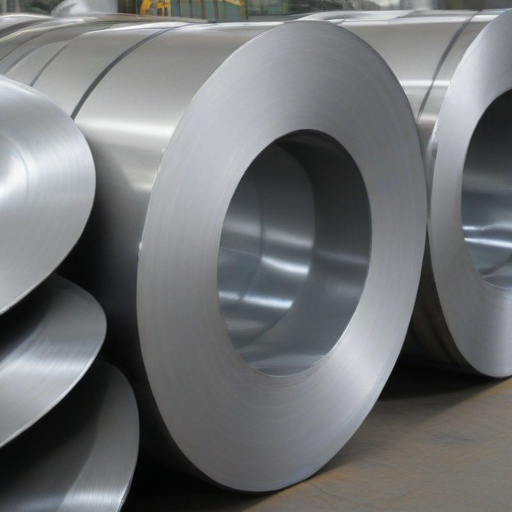
Price Cost Research for types of stainless steels manufacturers Companies in China, use temu.com and 1688.com
When researching prices and costs for types of stainless steels manufacturers in China, two popular platforms that can be utilized are temu.com and 1688.com.
On temu.com, users can find a wide range of stainless steel manufacturers offering various grades and types of stainless steels. By browsing through the listings on the website, users can compare prices and costs from different manufacturers to find the best deal for their specific needs. Additionally, users can also contact the manufacturers directly through the platform to inquire about pricing, minimum order quantities, and other relevant information.
Similarly, 1688.com is another popular platform for sourcing stainless steel manufacturers in China. The website offers a vast selection of manufacturers specializing in different types of stainless steels. Users can filter their search by grade, type, and other specifications to find the most suitable supplier for their requirements. On 1688.com, users can also view detailed product descriptions, pricing information, and contact details for the manufacturers.
By utilizing both temu.com and 1688.com, users can access a wide range of stainless steel manufacturers in China and easily compare prices and costs to make an informed decision. These platforms provide a convenient and efficient way to research and source stainless steels manufacturers in China for various industrial and commercial applications.
Shipping Cost for types of stainless steels import from China
When importing stainless steels from China, the shipping cost will vary depending on the type and quantity of the steel being imported. Generally, there are four main types of stainless steels: austenitic, ferritic, martensitic, and duplex.
Austenitic stainless steels, which are the most commonly used type, typically have a lower shipping cost due to their widespread availability and popularity in the market. Ferritic stainless steels, known for their high resistance to corrosion, may have a slightly higher shipping cost due to their specific properties.
Martensitic stainless steels, which are known for their high strength and hardness, may also have a higher shipping cost compared to austenitic steels due to their specialized nature. Duplex stainless steels, on the other hand, are a combination of austenitic and ferritic steels, and their shipping cost may vary depending on the specific composition.
Overall, it is important to consider factors such as the weight, volume, and shipping method when calculating the shipping cost for importing stainless steels from China. Working closely with a reputable shipping company or freight forwarder can help ensure that the most cost-effective shipping option is selected for the specific type of stainless steel being imported. Additionally, negotiating with suppliers and consolidating shipments can also help reduce overall shipping costs.
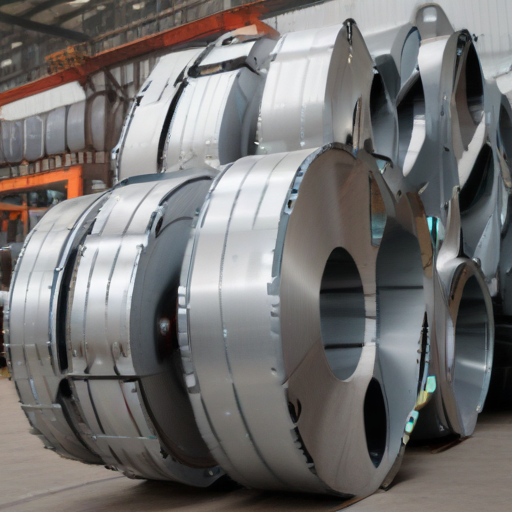
Compare China and Other types of stainless steels Markets: Products Quality and Price,Visible and Hidden Costs
China is a dominant player in the stainless steel market, producing a wide range of products with varying quality and price points. Chinese stainless steel products are generally known for their competitive pricing, making them attractive to buyers looking for cost-effective options. However, there are concerns about the quality of Chinese stainless steel, as some products may not meet the same standards as those from other countries.
In comparison, stainless steels from countries like Japan, South Korea, and Germany are known for their higher quality and superior performance. These products are often priced at a premium compared to Chinese stainless steel, reflecting the higher manufacturing standards and superior materials used in production.
When it comes to visible and hidden costs, Chinese stainless steel may have lower upfront prices, but potential quality issues can lead to increased maintenance and replacement costs in the long run. In contrast, stainless steels from other countries may have higher upfront prices but can offer better overall value due to their durability and longevity.
Overall, buyers need to weigh the trade-offs between price and quality when selecting stainless steel products. While Chinese stainless steel may be more affordable, it may come with hidden costs in terms of maintenance and replacement. On the other hand, stainless steels from other countries may offer better performance and longevity, making them a more cost-effective choice in the long term.
Custom Private Labeling and Branding Opportunities with Chinese types of stainless steels Manufacturers
Are you looking to create your own line of stainless steel products? Partnering with Chinese manufacturers can offer you the opportunity to take advantage of custom private labeling and branding options.
Chinese manufacturers are known for their high-quality stainless steel products at competitive prices. With their expertise in producing various types of stainless steels, you can choose the material that best suits your needs and specifications. Whether you are looking for 304, 316, or other grades of stainless steel, Chinese manufacturers can provide you with a wide range of options to choose from.
When it comes to private labeling and branding, Chinese manufacturers are experienced in working with companies to create custom designs and logos that reflect their brand identity. From custom engraving to customized packaging, you can tailor every aspect of your product to meet your unique branding requirements.
By partnering with Chinese manufacturers, you can benefit from cost-effective production solutions without compromising on quality. You can also take advantage of lower minimum order quantities, making it easier for startups and small businesses to launch their own line of stainless steel products.
Overall, partnering with Chinese manufacturers for custom private labeling and branding opportunities can help you bring your vision to life and create a unique product that stands out in the market. Get in touch with Chinese stainless steel manufacturers today to explore the possibilities for your brand.
Tips for Procurement and Considerations when Purchasing types of stainless steels
When purchasing stainless steel, it is important to consider the specific types and grades that best suit your needs. Some common types of stainless steel include:
1. Austenitic stainless steels: These are the most common type of stainless steel, known for their excellent corrosion resistance and easy formability. Grades like 304 and 316 are widely used in various industries.
2. Ferritic stainless steels: These are magnetic and have good corrosion resistance, making them suitable for applications where high strength and resistance to stress corrosion cracking are required.
3. Martensitic stainless steels: Known for their high strength and hardness, martensitic stainless steels are often used in applications where wear resistance and durability are essential.
When procuring stainless steel, consider the following factors:
1. Corrosion resistance: Consider the environment in which the stainless steel will be used and choose a grade that offers adequate corrosion resistance. Austenitic stainless steels are generally recommended for most applications.
2. Mechanical properties: Different grades of stainless steel offer varying levels of strength, hardness, and ductility. Choose a grade that meets the specific mechanical requirements of your application.
3. Fabrication requirements: Consider the ease of welding, forming, and machining of the stainless steel grade you are purchasing. Austenitic stainless steels are generally easier to fabricate than martensitic or ferritic stainless steels.
4. Cost: The cost of stainless steel can vary depending on the grade and availability. Consider the overall project budget and choose a grade that offers the best balance of cost and performance.
By carefully considering these factors and selecting the right type of stainless steel for your needs, you can ensure the success of your procurement process and the quality of your final product.
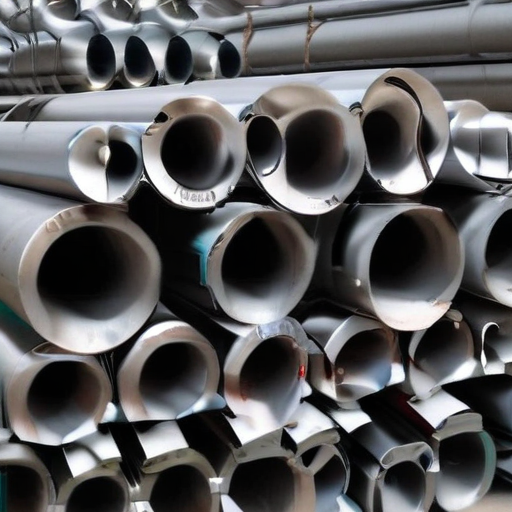
FAQs on Sourcing and Manufacturing types of stainless steels in China
1. What are the common types of stainless steels manufactured in China?
China manufacturers produce a wide range of stainless steel materials, including austenitic, ferritic, martensitic, and duplex grades. Common types include 304, 316, 430, and 2205 stainless steels.
2. How do I source stainless steel materials from China?
You can source stainless steel materials from China through various methods, such as contacting manufacturers directly, working with trading companies, attending trade shows, or using online B2B platforms. It’s important to conduct due diligence on suppliers and verify their certifications and quality standards.
3. What are the advantages of sourcing stainless steels from China?
China is known for its cost-effective manufacturing capabilities, fast production lead times, and high production capacity. Chinese manufacturing facilities are equipped with advanced technology and skilled labor, making it a preferred destination for sourcing stainless steel materials.
4. Are there any quality concerns when sourcing stainless steels from China?
While China has a reputation for manufacturing high-quality stainless steels, there may be concerns regarding product consistency, material traceability, and adherence to international quality standards. It’s important to work with reputable suppliers and conduct quality inspections.
5. Can I customize stainless steel products in China?
Yes, many Chinese manufacturers offer customization services to meet specific requirements for stainless steel products. You can discuss your design specifications, material preferences, and quality standards with the manufacturer to produce customized stainless steel materials.
Why contact sourcifychina.com get free quota from reliable types of stainless steels suppliers?
Sourcifychina.com is a leading sourcing platform that connects businesses with reliable suppliers in China. By contacting Sourcifychina.com, you can get a free quota from trusted types of stainless steel suppliers. This is beneficial because it allows you to access a wide range of options and choose the best supplier that fits your specific requirements.
Stainless steel is a highly versatile and durable material used in various industries such as construction, automotive, and manufacturing. Different types of stainless steel have distinct properties and applications, so it’s essential to find a supplier that offers the right type of stainless steel for your needs.
By working with a reliable supplier recommended by Sourcifychina.com, you can ensure that the stainless steel you receive is of high quality, meets industry standards, and is delivered on time. This can help you avoid potential issues such as delays, substandard products, or communication difficulties that may arise when dealing with unverified suppliers.
In conclusion, contacting Sourcifychina.com to get a free quota from trusted types of stainless steel suppliers is a smart decision that can save you time, money, and effort in finding the right supplier for your business. With their assistance, you can streamline your sourcing process and confidently source the stainless steel products you need.
